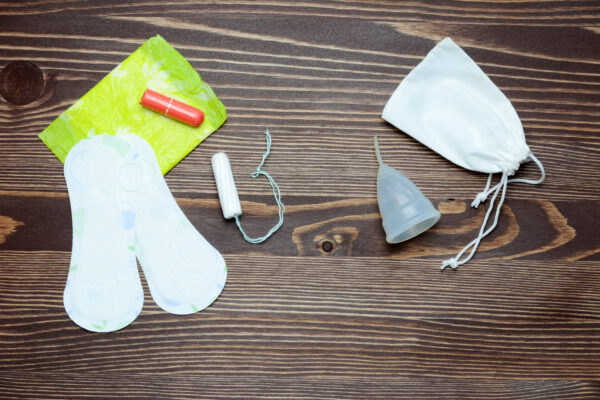As a recent graduate of Lincoln High School and engaged student activist, I have been honored to work on many issues to improve my community and my world such as advancing racial justice and advancing gender equity. My work to reduce the stigma of menstruation was recently profiled in my hometown newspaper the Lincoln Journal Star. The State Director of the ACLU read about my work and asked me to write a blog to share my recent research. So I put together this blog before I head off to American University in D.C. for college next week.
Over the last year I created the American Menstrual Journal which compiled personal stories that are shared for the purpose of normalizing menstruation and combating the stigma around periods. Over the course of nine months, American Menstrual Journal collected over 100 different testimonials of folks experiences with menstruation. These stories were then shared via social media in defiance of the social conditioning that says experiences with menstruation should be silenced; this defiance is rooted in the idea that to create sustainable and inclusive change in regards to period poverty, we needed to collect, evaluate, and compare the complex and wide ranging experiences of menstruation. Once we begin to openly discuss our experiences of our periods we can begin to understand what common factors are the forefront of period poverty. Here are two key findings about menstruation inequality from our work:
The people who get periods range in age, gender and socio-economic status. These differences caused us to find that the experiences of menstruation were wide ranging. For example, in the context of gender, menstruation had very different meanings. One person discussed their how periods don’t positively affirm their gender: “I go between identifying as male or as genderless. Both mindsets squarely put my mind into the “this isn’t supposed to happen” mode, and can cause intense dysphoria. It’s hard to navigate that a lot of times, though my coping skills with it have become much better over time.” Conversely, periods for a different user affirmed their gender, “As a female I was always thankful to have something that was so, well, FEMALE. It was something which happened to me and women around me that was private, secret, unknown amongst the men, who really controlled our lives in other ways,” This distinct gap highlights how when approaching issues relating to menstruation, the solution needs to intersectional and inclusive of ALL menstruators. Not all women menstruate and not all menstruators are women.
Another common thread in the American Menstrual Journal was the lack of belief of menstruation related pain. Multiple people responded to us with stories of how their pain related to their periods was not widely understood or believed. One story discussed how medical professionals have dismissed menstruation pain as being false, “I'm on depo I still get bad periods even though they should have stopped a long time ago, I will be on my period for a week or two at a time and still get sick and still get bad cramps. I've had doctors tell me I’m fine and that nothing is wrong, and I've had others say that obviously something is wrong.” Anatomically periods and childbirth are intrinsically related. Therefore it is possible that when you begin to find solutions to end the double standards in period pain care, you can find solutions to the double standards of maternal deaths due to lack of believing in anatomically female pain.
American Menstrual Journal’s original goal of combating menstruation stigma evolved over time into a project that aimed to gather, share and validate menstruator’s experiences. Menstruation is a large community of folks of different experiences with pain, gender and so much more. We learned this through gathering stories. Through these stories we began to understand how period poverty does not have a one action solution. That is why American Menstrual Journal encourages solutions to menstrual inequality to be inclusive, fluid and accessible to ALL Menstruators.
I encourage everyone to take action to help us end period poverty in Nebraska, across the United States, and Worldwide. Here are just a few ideas about concrete things you can do to make a positive difference. Learn more about the ACLU of Nebraska’s successful campaign to ensure access to free menstrual supplies for incarcerated people, end the tampon tax, learn more about how other countries are advancing gender equity, and share your story at American Menstrual Journal.


